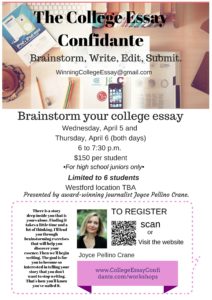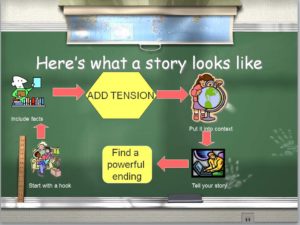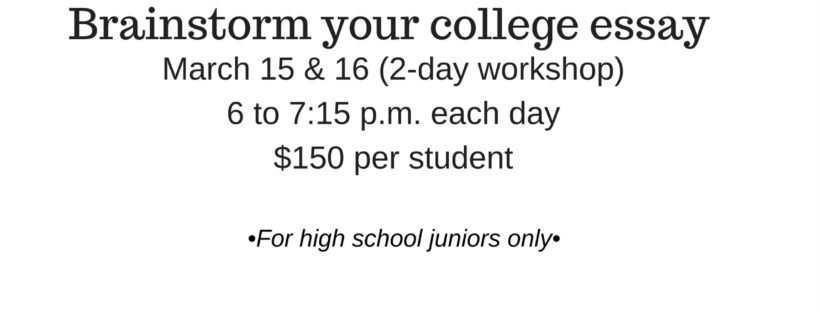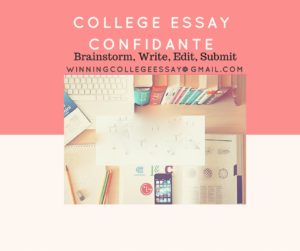The College Essay Confidante can be reached at winningcollegeessay@gmail.com.
UPCOMING WORKSHOP: Wednesday, March 15, 6 to 7:15 p.m. and Thursday, March 16, 6 to 7:15 p.m.; $150 per student for both nights. Location will be in Westford. Address provided to registrants. If these dates are not convenient for you, private sessions can be arranged.
As a high school junior you are at the beginning of the college application process. Determining how to present yourself in an essay will be one of your more challenging endeavors.
Most students, when they begin thinking of writing the college essay, wonder how to come up with a topic that highlights their traits, character, and talents.
This is where brainstorming comes in. You fine a topic by taking baby steps.
In my workshops, “Brainstorming Your College Essay,” I usually begin with a simple writing exercise, asking the students to describe their bedrooms. “Tell me what color are the walls,” I say. “Where is the room located inside the house?” What do you see when you look outside the window?”
This simple exercise takes students inside their heads and helps them to reflect on what is important to them. It teaches them to put things in context. A bedroom is the most personal space you occupy. It’s where you store your dreams and thoughts in the books you place on the bookshelf, the jewelry you leave on the dresser and the pictures you hang on the walls.
If you can reflect your bedroom, you can reflect a part of yourself.
From there we take time getting to know each other.
The workshop has a maximum of six students and runs for three hours.
This gives us the time we need to get to know each other and to discuss potential topics.
You’ll leave with a written paragraph and the option of emailing me your completed essay for editing, if you meet a reasonable deadline.







